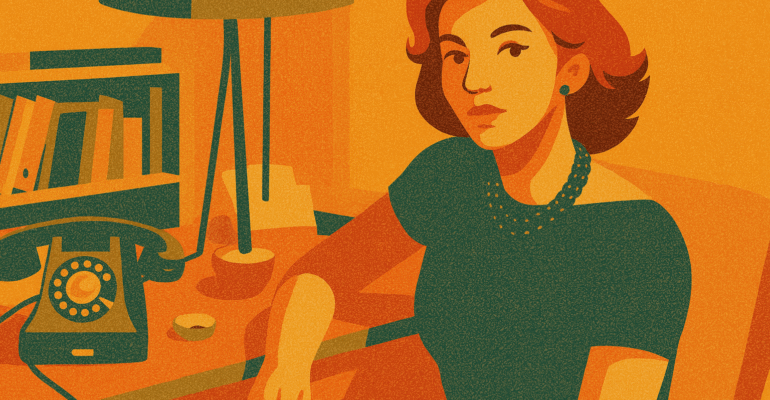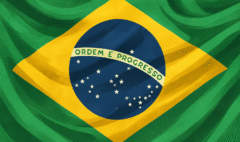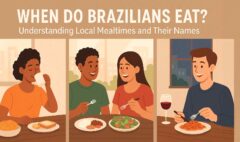Clarice Lispector: A Literary Icon of the 20th Century
Clarice Lispector: A Literary Icon of the 20th Century
Early Life and Background
Born in Tchetchelnik, Ukraine, in 1920, Clarice Lispector arrived in Brazil with her family in 1922. They first settled in Recife before moving to Rio de Janeiro.
From an early age, Clarice demonstrated a keen interest in literature. She learned to read and write in 1928 and penned her first theatrical play, Pobre Menina Rica (“Poor Rich Girl”).
Education and Career Beginnings
Clarice pursued a law degree and initially worked at a law firm. However, by the 1940s, she had shifted her focus to literature and journalism. In 1943, she married diplomat Maury Gurgel Valente, leading her to live in various cities worldwide, including Naples, Bern, and Washington, D.C.
Literary Legacy and Influences
Clarice Lispector left a profound impact on Brazilian and global literature. She frequently interacted with renowned authors such as Vinícius de Moraes, Rachel de Queiroz, and Cornélio Pena, contributing to the literary scene of her time.
Notable Novels
- Perto do Coração Selvagem (1943) – “Near to the Wild Heart”
- O Lustre (1946) – “The Chandelier”
- A Cidade Sitiada (1949) – “The Besieged City”
- A Maçã no Escuro (1961) – “The Apple in the Dark”
- A Paixão Segundo G.H. (1964) – “The Passion According to G.H.”
- Uma Aprendizagem ou o Livro dos Prazeres (1969) – “An Apprenticeship or The Book of Pleasures”
- Água Viva (1973) – “The Stream of Life”
- A Hora da Estrela (1977) – “The Hour of the Star”
- Um Sopro de Vida (1978) – “A Breath of Life”
Short Story Collections
- Alguns Contos (1952) – “Some Stories”
- Laços de Família (1960) – “Family Ties”
- A Legião Estrangeira (1964) – “The Foreign Legion”
- Felicidade Clandestina (1971) – “Covert Happiness”
- A Imitação da Rosa (1973) – “The Imitation of the Rose”
- Onde Estivestes de Noite (1974) – “Where Were You at Night”
- A Via Crucis do Corpo (1974) – “The Via Crucis of the Body”
- O Ovo e a Galinha (1977) – “The Egg and the Chicken”
- A Bela e a Fera (1979) – “Beauty and the Beast”
Chronicles and Non-Fiction
- Para Não Esquecer (1978) – “Not to Forget”
- A Descoberta do Mundo (1984) – “The Discovery of the World”
Children’s Books
- O Mistério do Coelho Pensante (1967) – “The Mystery of the Thinking Rabbit”
- A Mulher que Matou os Peixes (1968) – “The Woman Who Killed the Fish”
- A Vida Íntima de Laura (1974) – “The Intimate Life of Laura”
- Quase de Verdade (1978) – “Almost True”
- Como Nasceram as Estrelas (1987) – “How the Stars Were Born”
Death and Lasting Influence
Clarice Lispector passed away in 1977 at the age of 56 due to ovarian cancer. Despite her premature death, her influence on literature remains undeniable. Her distinctive literary style, characterized by short, impactful sentences and deep psychological introspection, continues to inspire writers and readers worldwide.
Clarice challenged literary conventions by integrating psychological and philosophical depth into her works. She played a crucial role in discussing female identity and paved the way for future generations of female writers in Brazil and beyond.
Why Clarice Lispector’s Work Remains Relevant
Clarice Lispector’s writing remains a cornerstone of Brazilian literature, offering an unparalleled exploration of the human psyche. Whether through her novels, short stories, or children’s books, her ability to depict emotions and internal conflicts ensures her legacy will endure for generations to come.
Conclusion
Clarice Lispector was a literary pioneer whose works continue to resonate across time and borders. Her deep psychological insights, poetic prose, and unique narrative style have solidified her place among the most influential writers of the 20th century. Her literature remains essential reading for those seeking to understand human emotions, existential reflections, and the richness of Brazilian culture.
Learn Portuguese the Brazilian Way! 🇧🇷✨
At The Brazilian Ways, we believe language learning should be fun, immersive, and deeply connected to culture. Our unique courses help you speak Portuguese naturally while experiencing Brazil through its music, films, literature, and dance.
🎶 The Brazilian Music Club – Learn Portuguese through the rhythm and lyrics of Brazilian music.
🎬 The Movie Club – Improve your Portuguese while exploring the best of Brazilian cinema.
📖 The Short Story Club – Enhance your skills by diving into Brazilian literature.
💃 Portuguese for Zouk – Connect with the Zouk dance community while learning Portuguese.
✨ Join a vibrant community of learners and experience Brazil through language!
👉 Explore our programs and start today! 🚀
📲 Follow us on Instagram for more engaging content, language tips, and cultural insights: @thebrazilianways













